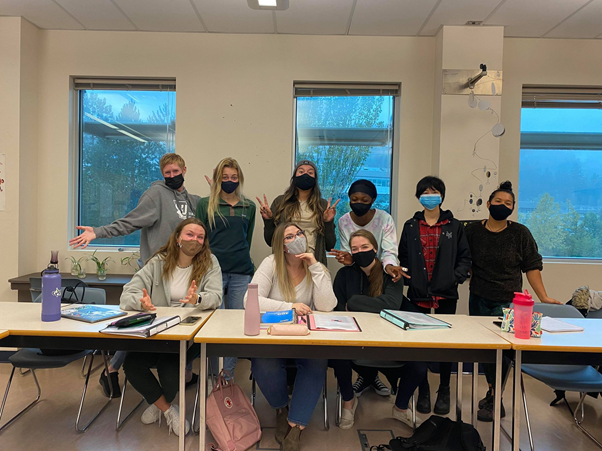By Samantha Bremner
What an amazing feeling it is to meet so many of my professors and classmates in the ECEC program for the first time in person after being colleagues and friends online for over a year. The feeling of being in a real life classroom with all these wonderful people is unreal. Being in the same space has enabled me to feel the energy of the group during discussions, and be moved by others.
When I got accepted to the ECEC program back in the beginning of 2020 I was so excited to meet new friends who had similar interests as me! When I found out that the program was going to be online due to Covid 19 I was very upset and worried as I had never done any online schooling before. Throughout the year I was convinced that I would probably never get to meet all the beautiful faces that I’ve come to know as rectangles on my computer. This year proved me wrong and let me tell you I’ve never been happier to be proved wrong!
Everyone in our ECEC cohort is amazing. We are supportive, kind, friendly and helpful. Something I have also noticed is I find it much easier speaking out loud and sharing my thoughts in a classroom, because I have grown to know and trust everyone in the program. We are creating a place to be vulnerable, knowing we won’t be judged.
Being in a class with all these amazing people gives my mood and energy such a boost, unlike zoom where I unfortunately leave the class feeling a bit drained most of the time. Yesterday a few of us decided to stay on campus after our 270 class and get some lunch before our next class! We all went and got Subway and came back to the ECEC classroom to eat it. Afterwards the six of us joined the next zoom class as a group. It was a lot of fun hanging out and getting to know each other outside of class.I am nourished by interactions.
We are also a lot taller than I thought.

